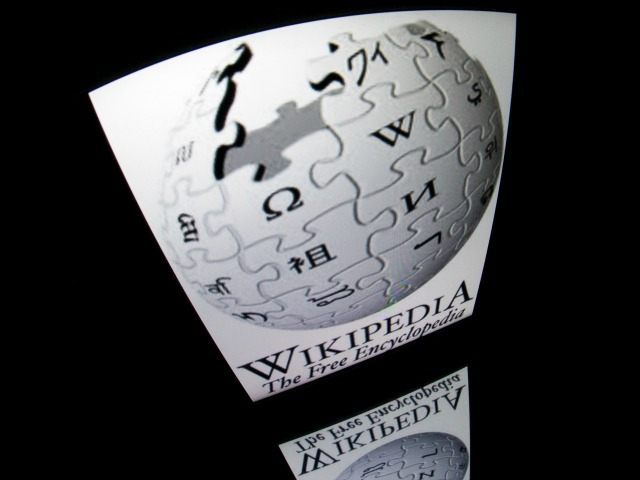Lila Tretikov is leaving her position as the Executive Director of the Wikimedia Foundation in the midst of turmoil over lack of communication about the non-profit’s plans.
In an open letter to the Board of Trustees, “tech gnome” Ariel Glenn of the Wikimedia Foundation described the current company climate as “toxic.” He says that the WMF is “bleeding out. Slowly at first, but it’s just a matter of time — and probably not much of it — before that trickle turns into a flood.” The letter pleaded with “the one organization that has the ability to stop it, to step in and do so.”
Glenn describes a grim situation behind the doors of Wikimedia. His litany of reasons include “bad hirings, decisions in secret, dissembling and coverups about the processes that led to those decisions; refusal or inability to state a clear vision, let alone get buy-in or the involvement of staff/community in shaping that vision; restructuring the organization following these same broken processes,” but it’s “not just about an [Executive Director].”
Despite a public call for Tretikov’s dismissal, Glenn notes that is will only be the “first step” in a “mountain” of “hard, painful, exhausting work” that the foundation faces in the wake of her decisions.
In November at The Meeting (you all know which one I mean), Jimmy Wales called on all of us to give Lila Tretikov a second chance, a chance to rebuild the trust that had been lost. We’re well beyond that point now. That trust is irrevocably broken. It’s possible that she would be able to play a part in the healing and regrouping that must happen within the WMF going forwards, but only as a private individual.
Today, Tretikov beat them to the punch. The day after this indictment of her leadership was published, Tretikov decided that it is time for her to move on from the WMF. This immediately follows questions from Wikimedia’s massive volunteer community about a previously undisclosed grant from the Knight Foundation.
The $250,000 grant was awarded this past September to Tretikov, on behald of the WMF, “to advance new models for finding information by supporting stage one development of the Knowledge Engine by Wikipedia, a system for discovering reliable and trustworthy public information on the Internet.” Despite the grant letter having been uploaded by Wikimedia itself, Tretikov denied that Wikimedia was pursuing plans for a search engine.
In a “discovery” meeting earlier in the month regarding the “Knowledge Engine,” Tretikov claimed she “didn’t realize the need to share very raw, nascent ideas,” and said that she “got a lot of feedback that taking early ideas (at the brainstorm/pie in the sky stage) out to the community would cause too much turmoil and pushback.” She asserted that conversations with the community would have been involved in the process, but “as a second stage, where it should have been first.”
Caitlyn Virtue, Wikimedia’s Director of Development, was a bit more blunt:
This is bad, and not just bad for our relationship with Knight. It’s clear that leadership did not follow our own movements’ best practices, that we don’t seem to know the way that wikimedia works. That’s a really big problem. The ripple effects of this are many and large.
And despite Design Manager Moiz Syed’s concerns regarding all of the “bad press” regarding Tretikov’s opaque approach to a foundation built upon transparency, Tretikov said that “the press is wrong on issues, not necessarily bad.”
But Wikimedia’s User Experience Engineer Julien Girault brought a dose of reality to the table:
At some point, we start feeling shame about what we’re doing, which causes problems. 3 of our goals are about search. The Knight grant talks about a search engine, and some mock-ups look like google. There are legitimate reasons people might think we might be planning to create a google competitor.
Tomasz Finc, Director of Discovery, specified during the meeting that they are “building an internal search engine, and we are not building a broad one.” But despite Lila’s protests that the grant information had been shared “without context,” the damage had already been done.
William Beutler, one of the editors and The Wikipedian blogger, described an “increasing alienation of the community from the foundation” in an interview with Motherboard, a sentiment loudly echoed in Ariel Glenn’s letter to the Board.
Despite all of this, Lila Tretikov has framed her time with the Wikimedia Foundation as something largely positive. She believes that they have “accomplished a lot together,” making a somewhat ironic claim about “stemming the loss of our editorial community.”
Lila’s last day will be March 31st, and the Wikimedia Foundation will appoint interim leadership while they search for a new Executive Director. Their vision remains the same: “a world in which every person can share the sum of all knowledge.”
Hopefully, under new leadership, that knowledge will include Wikimedia itself.
Follow Nate Church @Get2Church on Twitter for the latest news in gaming and technology, and snarky opinions on both.

COMMENTS
Please let us know if you're having issues with commenting.